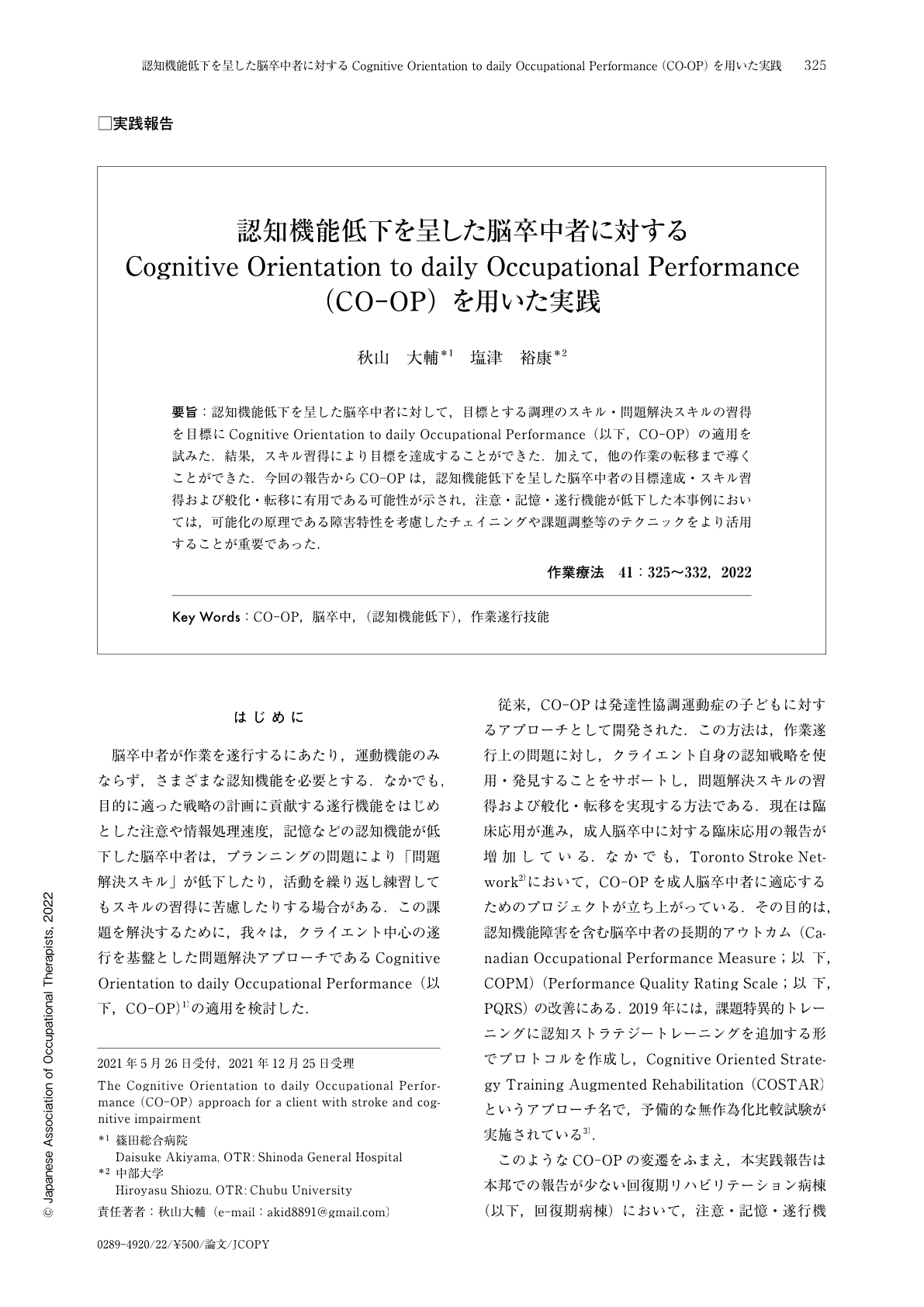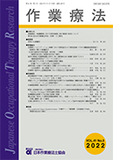Japanese
English
- 販売していません
- Abstract 文献概要
- 1ページ目 Look Inside
- 参考文献 Reference
要旨:認知機能低下を呈した脳卒中者に対して,目標とする調理のスキル・問題解決スキルの習得を目標にCognitive Orientation to daily Occupational Performance(以下,CO-OP)の適用を試みた.結果,スキル習得により目標を達成することができた.加えて,他の作業の転移まで導くことができた.今回の報告からCO-OPは,認知機能低下を呈した脳卒中者の目標達成・スキル習得および般化・転移に有用である可能性が示され,注意・記憶・遂行機能が低下した本事例においては,可能化の原理である障害特性を考慮したチェイニングや課題調整等のテクニックをより活用することが重要であった.
We used the Cognitive Orientation to daily Occupational Performance (CO-OP) approach to intervene in a stroke patient with impaired cognitive function. This purpose was for the client to acquire cooking and problem-solving skills. As a result, this intervention helped the client acquire skills and achieve her goals. In addition, the client could transfer the skills to other occupations, indicating that the CO-OP approach may be useful for goal attainment, skill acquisition, generalization, and transfer in stroke patients with cognitive impairments. In cases of impaired attention, memory, and executive function, it is important to intervene using techniques such as chaining and task accommodation as enabling principles with the characteristics of the disability in mind.

Copyright © 2022, Japanese Association of Occupational Therapists. All rights reserved.


